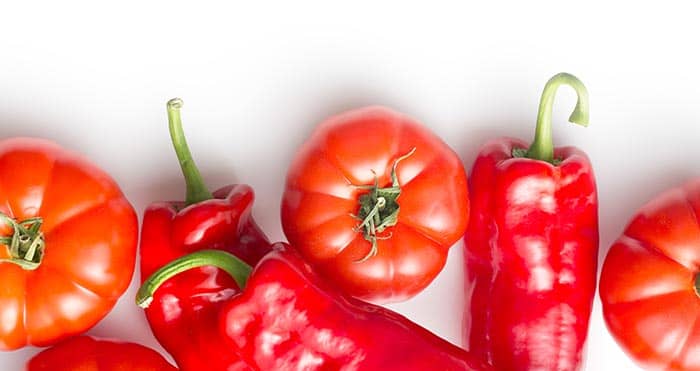By Igba Ogbole
These are not the best of times for lovers of fresh tomato and pepper.
Given its appealing flavour to the taste bud and rich nutritional value addition, tomato is the favourite of many. Despite the ambiguity in its classification, whether it is fruit or vegetable, tomato is a critical component of most meals in many homes. In fact, as a person, I have a special craving for it. If you understand how a pregnant woman craves for some things, then you will appreciate the level of my desire for tomato, the fresh, luscious type.
Not too long ago, access to fresh tomato was never a challenge. Local farmers produced some while traders provided some more, from other parts of the country. It was also affordable. Its cost regime was so flexible that there was something for every amount, depending on the quantity of choice.
All these are changing swiftly in our very eyes. Fresh tomato is difficult to come by these days. Even when you are lucky enough to run into some, the effect of the slap from the price will easily remind you of a knock-out punch from a Muhammad Ali or Mike Tyson! Yes, that’s how serious the situation is.
Last Saturday, in the course of researching for this piece, I visited three markets within Makurdi, the Benue State Capital – Modern, Wadata and Wurukum Markets. I wanted to have first-hand knowledge of the cost of tomato.
Depending on the size, a basket of Jos tomatoes sold for between N40,000 and N50,000. The price of Tiv tomatoes on the other hand ranged from N30,000 to N60,000. Ten fruits of tomato of moderate size sold for N500.
Then pepper.
Pepper remains one of the most sought after spices or vegetable in our part of the world. It is one of the must-have ingredients in the preparation of savoury dishes. Apart from the value addition pepper brings to bear on the taste and flavour of meals, it boasts of loads of nutritional values, especially Vitamins.
Sadly, the cost of pepper, “ordinary pepper” as housewives would say, has gone through the roof. In Wadata Market, Makurdi, a bag of pepper sells for between N80,000 and N90,000 depending on the size, while a rubber container is N7,000 to N8,000, as at Sunday June 30, 2024. In other areas of the town, 3 fresh pepper are sold for N200. In some other parts of the country, you cannot even get pepper for N200. Traders would tell you straight to your face that the least quantity, barely enough for a meal, goes for N500.
This is the reality of our situation.
Apart from the harsh pangs of the hyper inflationary trends which our dear country is contending with presently, the incapacitation of farmers and farming communities through persistent acts of aggression and displacement from their comfort zones and areas of operation have combined to heighten food insecurity which is what is reflecting in the scarcity and exorbitant cost of food items, tomato and pepper inclusive.
The current situation takes one’s mind to the days of the Structural Adjustment Programme, SAP. Introduced in 1986, SAP was an economic programme of the Babangida Presidency intended to rejig the nation’s economy for the better. However, in the course of its implementation, SAP ended up sapping a lot of citizens to death due to its harshness. In its bid to grow the local economy, the then administration banned the importation of some categories of goods, leading to scarcity of food items. The government then introduced what was popularly known as “Essential Commodities” which were exempted from the ban.
Read Also: Benue Receives Share of FG Grains
SAP taught Nigerians of that era a lesson in the ‘tightening of belt’, a euphemism for learning and accepting to accommodate socio-economic hardships. In that era, having access to even the “Essential Commodities” such as rice, beans, milk, groundnut oil, Seasonings, etc was a big problem. More often than not, only those who knew their way around could access them, despite the fact that special committees were set up to handle the distribution to enable them get to everyone, supposedly. But I digress.
The co-relation I seek to establish between the SAP days and today is the fact that Nigerians are again going through another phase of something similar to SAP. Essential commodities, the most basic of them, are today becoming unreachable for the ordinary citizen. Tomato and pepper have become gold. So golden have they become that many homes are being pushed into adopting the policy of doing without them in their meals, as important as they are.
But, the incurable optimist that I am, I encourage everyone not give up hope. Things will get better, sooner or later. I keep having this reassuring feeling that our dear government is on top of the situation.
However, while we wait on hope, there is something we can do to help ourselves. I love the refrain, Eat What You Grow, Grow What You Eat. Before now, there had been this strong and intensive campaign for everyone to farm, no matter the size. I hereby re-echo that campaign. Even if you cannot engage in large scale farming, you can at least farm a little of something.
Tomato and pepper can thrive very well even in small gardens. That open, idle space in your compound or backyard can be converted into profitable tomato and pepper gardens. Profitable, not necessarily in terms of financial gain, but the savings you would enjoy when you no longer have to buy them from the market.
However, while I pray that you take to farming, at least gardening, you must remember to do so in an enclosed environment, if you live within Makurdi metropolis. If your compound is not fenced, do not farm. I wouldn’t want you to run afoul of the recent ban on cultivation of crops in open places and undeveloped plots within the state capital. If you have the means and your ancestral land has not been overrun by the marauders, then make arrangements to farm on such land.
In all, the current dearth and expensive nature of our darling tomato and pepper, as basic as they are, should further awaken us to the imperative of growing what we eat and eating what we grow.






